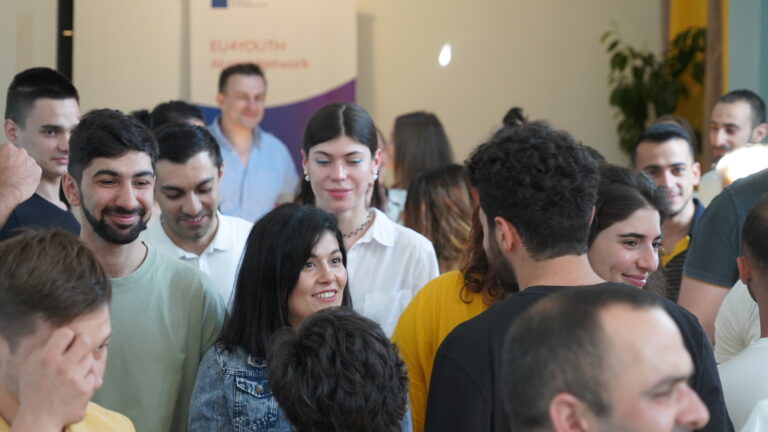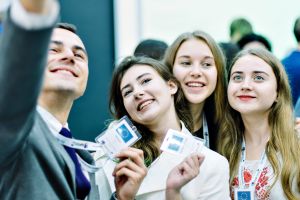
Working with young women in rural areas to gain confidence and learn new skills through the EU4Youth Alumni Network
There are many young women living in the Shida Kartli region in Georgia who haven’t had the chance to go to university or benefit from other educational experiences. The ‘Girl Power’ initiative, designed and rolled out by two members of the the EU4Youth Alumni Network, helped bridge the gap – offering much needed skills, such as organisation and planning, leadership, problem solving and decision making.
Nitsa Tsitsagi and Nika Kvrivishvili worked together to develop Girl Power to help women between the ages of 18 and 29 to become more active in their communities. This is not their first contribution to address the issues related to gender stereotypes and the barriers many women are facing in society. Together with her friends, Nitsa founded the Georgian–European Movement, an educational NGO that helps young people in Shida Kartli, her home region, to be more engaged with their community. Youth work gave her important skills, which have proven instrumental in the success of this project as well.
Nika had been involved in three Erasmus+ Mobility Projects and was well placed to help Nitsa host a consultation with local young women to identify what kind of support was most urgently needed. The conclusion was to focus on improving public speaking, the ability to work in a team and to establish new connections more easily. The women were also interested in exploring photography skills, film, cooking (especially exploring different cuisines), and various DIY crafts, such as embroidery, painting, bead-work, making decorations and sewing.
The project participants particularly enjoyed a group trip to the Museum of Illusions and a photo competition based on the pictures taken during the trip. Working in pairs during this activity also allowed the women to concentrate on individual relationships and group dynamics, fostering their communication and teamwork skills.
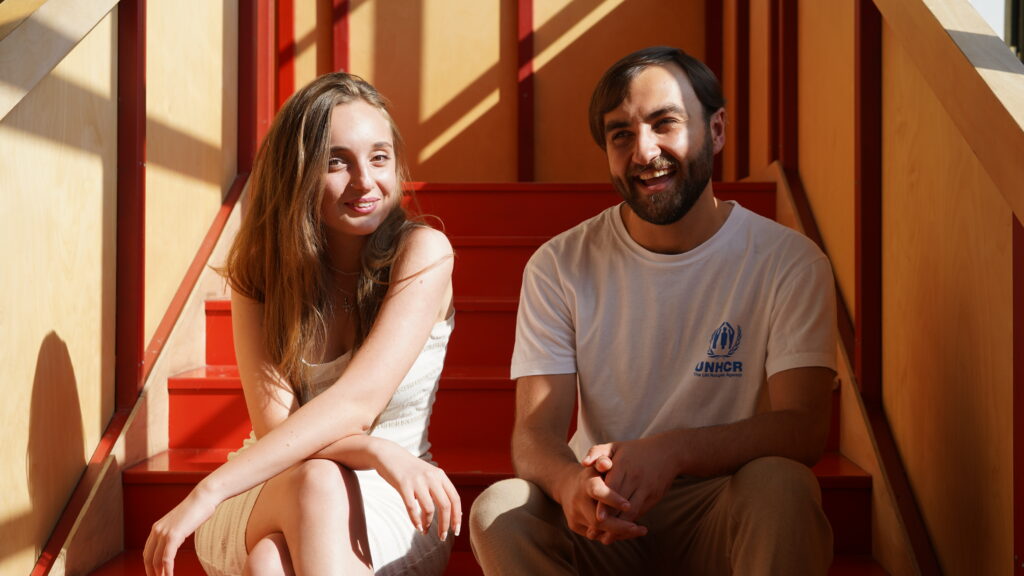
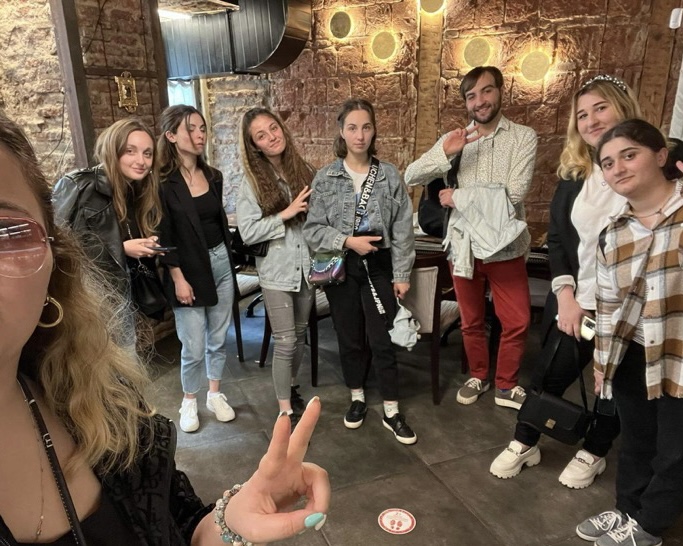
With the two craft activities, they had another chance to hone their collaboration skills. By presenting their pieces in front of the group and explaining why they thought theirs was the best, the women got to see themselves as public speakers and grow their confidence.
There was a movie evening organised around the theme of women and human rights. The robust discussion afterwards gave participants an opportunity to articulate their thoughts and ideas in a safe yet somewhat challenging environment, sharpening their debating, active listening and communications skills.
“I have learned that every step we make is worth it,” says Nitsa, “The progress my group made was worth all of the work and effort. I am not going to stop. I believe together we can engage youth in the community and make our society better.”
MOST READ
RELATED PROJECTS
SEE ALSO

No, time is not on Russia‘s side
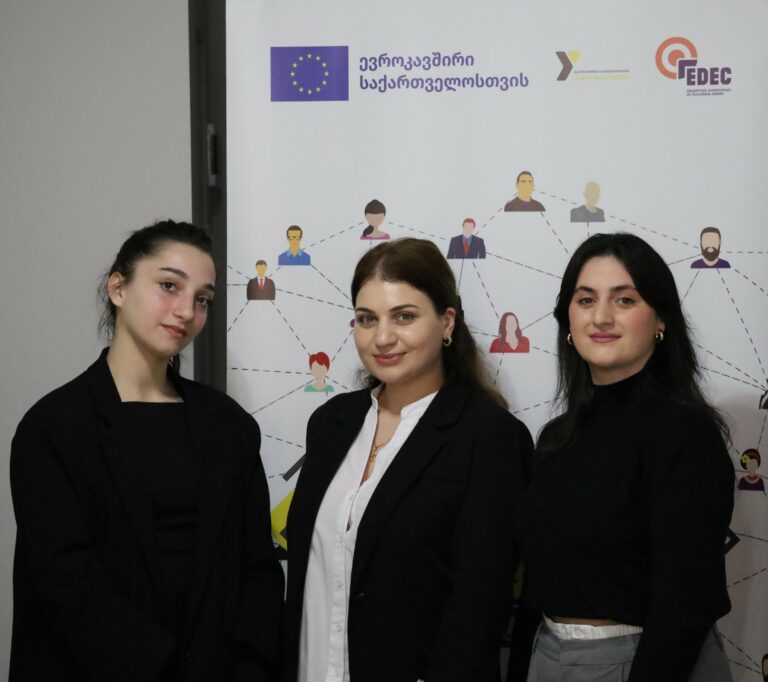
A hands-on approach to boost youth employment in Georgia
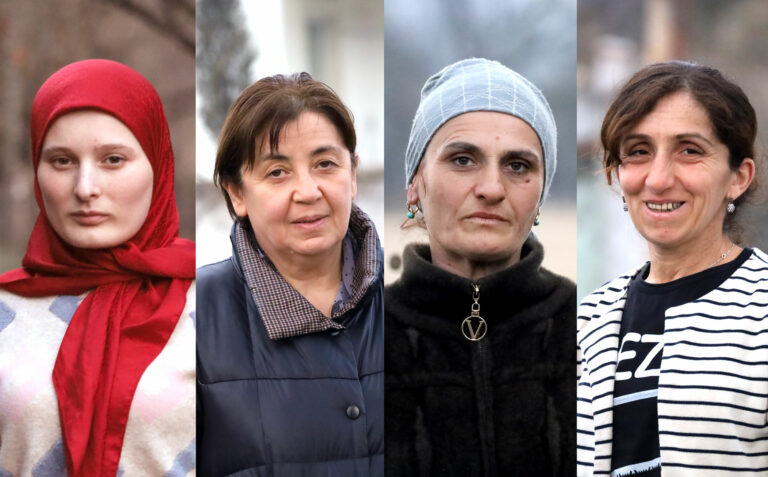
Taking health into their own hands: women’s empowerment in the remote villages of Georgia
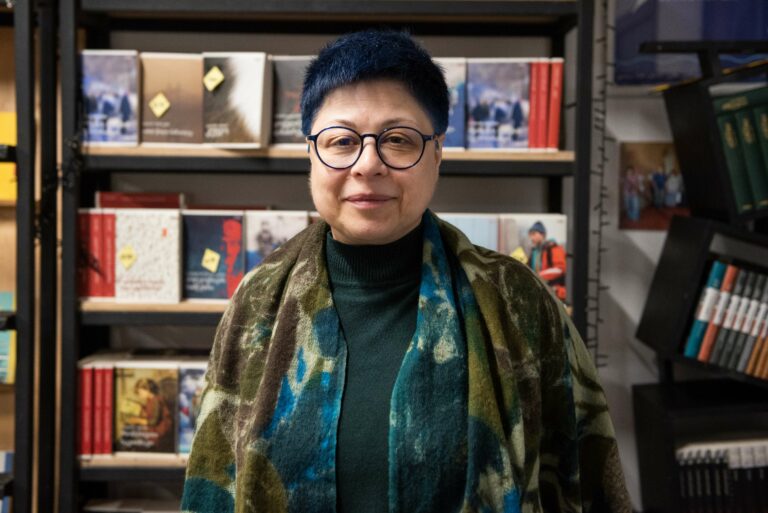
A woman publisher in a male-dominated industry – the path to a big dream

Be one step ahead of a hacker: check simple cybersecurity tips!
More campaign pages:
Interested in the latest news and opportunities?
This website is managed by the EU-funded Regional Communication Programme for the Eastern Neighbourhood ('EU NEIGHBOURS east’), which complements and supports the communication of the Delegations of the European Union in the Eastern partner countries, and works under the guidance of the European Commission’s Directorate-General for Neighbourhood Policy and Enlargement Negotiations, and the European External Action Service. EU NEIGHBOURS east is implemented by a GOPA PACE-led consortium. It is part of the larger Neighbourhood Communication Programme (2020-2024) for the EU's Eastern and Southern Neighbourhood, which also includes 'EU NEIGHBOURS south’ project that runs the EU Neighbours portal.

The information on this site is subject to a Disclaimer and Protection of personal data. © European Union,








